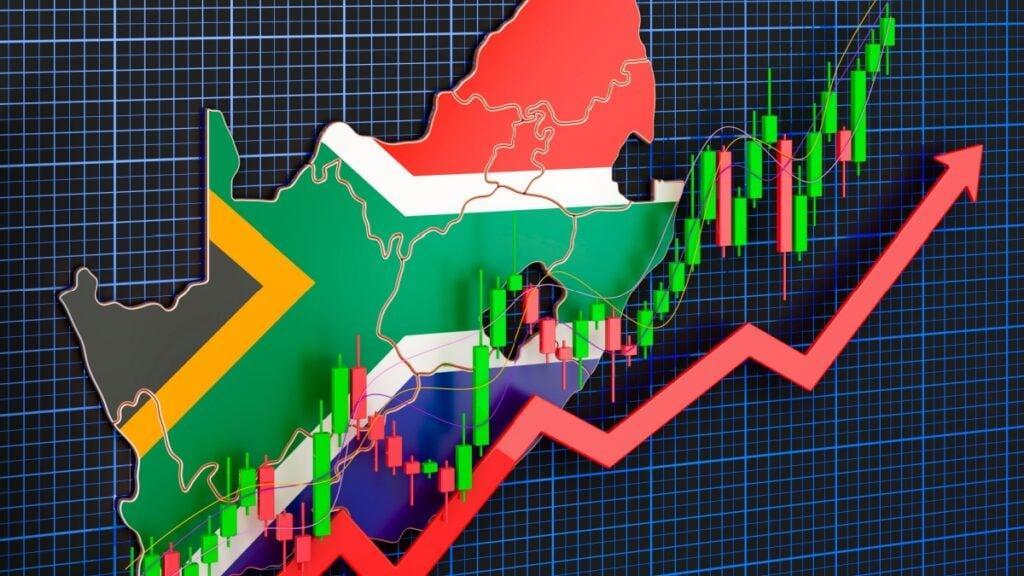Africa-Press – South-Africa. South Africa could more than quadruple its GDP growth if it implements urgent structural reforms in electricity, logistics, and infrastructure while attracting scarce global skills and investment.
This is feedback from Deputy Finance Minister Ashor Sarupen, who spoke at the 5th Global Mobility Conference hosted by Xpatweb in Johannesburg on 13 August 2025.
Sarupen explained that South Africa remains in competition with other emerging markets to attract global finance and investments, and the scarce skills that come with it, to boost its economy.
To become globally competitive, the country must solve its core issues around electricity supply and network industry challenges that hinder growth.
Sarupen stressed that South Africa remains a small, open economy and a policy taker, not a policy maker.
In an increasingly mobile global economy, investors can choose between emerging markets like China, India and Rwanda, to name just a few.
Therefore, South Africa must position itself correctly to secure its chances of increased global investment.
According to the deputy minister, structural reforms are simply moving too slowly. “Nobody is going to rush to South Africa’s defence. It is up to us to position ourselves competitively,” he said.
The numbers echo Sarupen’s sentiment. Earlier this year, Investec calculated that if South Africa’s economy had grown at 4.5% a year, keeping pace with its emerging market peers, it would have added R5 trillion to the fiscus.
South Africa’s nominal GDP would have been just below R12 trillion in 2024, compared with the actual number of R7.5 trillion, around 36.7% smaller.
This additional revenue would have been enough to clear almost 90% of South Africa’s gross national debt, pay R390 billion over the next decade for Eskom transmission lines, or upgrade Transnet’s rail and port infrastructure, to name a few.
Urgent reforms needed
Sarupen explained that the first issue to address is ensuring a stable electricity supply and pricing stability.
The Electricity Regulation Act envisages a competitive market with multiple generation providers, which could unlock significant investment. However, insufficient transmission infrastructure is currently delaying this vision.
Eskom’s inefficiencies are passed directly to consumers, contributing to rising operational costs and higher inflation, which are core deterrents to business investment.
Sarupen also highlighted serious challenges in South Africa’s logistics sector. For instance, it is cheaper to truck fuel around the country than to use Transnet’s pipelines, and South Africa’s ports are among the worst-performing in the world.
This cripples the movement of goods and services, making local and foreign businesses think twice before investing.
Sarupen said that if South Africa can get these baseline reforms right, GDP growth can reach 2.6% per annum, exceeding population growth and putting the country on a positive economic trajectory.
To put this into perspective, over the last 15 years, South Africa’s economic growth has averaged around 1% a year. At the same time, the country’s population has grown at a rate of around 1.3%.
The World Bank also supports these reforms. In June 2025, it approved the Infrastructure Modernisation for South Africa Development Policy Loan, which targets key electricity, ports, and logistics bottlenecks.
At the time, Satu Kahkonen, World Bank Division Director for South Africa, said these reforms could create 250,000 jobs by 2027 and over 500,000 jobs by the early 2030s.
“They are essential for attracting investment and enhancing public service delivery,” Kahkonen said.
The Critical Skills List
Sarupen stressed the importance of South Africa making evidence-based decisions that attract foreign skills to the economy. “For every highly skilled foreign national brought into the country, seven unskilled jobs are created,” he said.
South Africa already has some key advantages that make it a good partner to foreign investors.
These include an English-speaking population, hospitable people, stable regulations, well-developed capital markets, macro-economic stability, and a society that, despite its challenges, remains orderly.
Phindiwe Mbhele, Director of Corporate Accounts at the Department of Home Affairs, said South Africa issues the fewest visas in the critical skills category.
These visas allow highly skilled foreign professionals to live and work in South Africa. However, they only qualify if their occupation falls within the National Critical Skills List.
This means that if a particular occupation does not appear on the list, employers cannot bring them into the country on a Critical Skills Visa, even if South Africa may need that skill.
From 2020 to September 2024, South Africa had issued 4,913 critical skills visas to nationals from over 100 countries, with more than half (55%) of those going to people from Zimbabwe and India.
Mbhele acknowledged that building skills takes time. Therefore, in updating the National Critical Skills List, the department aims to ensure it reflects the skills from abroad that the country and big corporations need.
Foreign skilled workers whose occupations appear on the Critical Skills List will benefit from an expedited visa process, ensuring that key economic activities and business projects are not delayed by visa adjudication.
For More News And Analysis About South-Africa Follow Africa-Press






